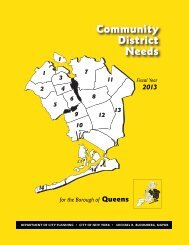Palm Oil Buyers Scorecard
WWF_Palm_Oil_Scorecard_2016
WWF_Palm_Oil_Scorecard_2016
Create successful ePaper yourself
Turn your PDF publications into a flip-book with our unique Google optimized e-Paper software.
68 PALM OIL<br />
SCORECARD 100 2016:<br />
SUMMARY<br />
ASSOCIATED<br />
BRITISH FOODS<br />
IMUSA DOLUPTATIOS<br />
VOLORE EICIIS IMUS<br />
A AUT ET AUT QUI.<br />
DAE COMNIS<br />
CORROVIDUNT AD<br />
AS DEMAND<br />
CONTINUES TO<br />
Ad mos ipsapic<br />
tatecatum aut<br />
EXPAND, THE<br />
quo que am<br />
INDUSTRY HAS A<br />
RESPONSIBILITY TO<br />
ENSURE PALM OIL IS<br />
PRODUCED<br />
SUSTAINABLY<br />
WWF’s <strong>Palm</strong> <strong>Oil</strong> <strong>Scorecard</strong> shows<br />
what companies are – and aren’t<br />
– doing to prevent the negative<br />
environmental and social impacts of<br />
palm oil production.<br />
<strong>Palm</strong> oil is a hugely important commodity, but it can also cause deforestation, create<br />
greenhouse gas (GHG) emissions, drive social conflicts and lead to the loss of vital<br />
habitats and unique biodiversity. As demand continues to expand, the industry has<br />
a responsibility to stop illegal and irresponsible practices and ensure palm oil is<br />
produced sustainably. One way to do that is to support the Roundtable on Sustainable<br />
<strong>Palm</strong> <strong>Oil</strong> (RSPO) and more importantly buy RSPO-certified sustainable palm oil.<br />
The WWF <strong>Palm</strong> <strong>Oil</strong> <strong>Scorecard</strong> shines a light on what companies are doing to tackle<br />
the problems around palm oil. Building on previous WWF <strong>Scorecard</strong>s in 2009, 2011<br />
and 2013, this latest edition brings into sharp focus which companies have met their<br />
commitments on palm oil – and which are falling behind.<br />
The results cover 2015 – the deadline year by which many companies promised to use<br />
100 per cent certified sustainable palm oil (CSPO). While many companies have made<br />
commendable strides forward and honoured their commitments, others have made<br />
little progress or taken no action at all.<br />
What we<br />
looked at<br />
This <strong>Scorecard</strong> assessed the performance of 137 retailers, manufacturers and food<br />
service companies from Australia, Canada, Europe, India, Japan and the US. Between<br />
them, these brands use more than 6 million tonnes of palm oil, representing roughly 10<br />
per cent of global use.<br />
In this <strong>Scorecard</strong> we looked again at the same core actions that any responsible<br />
company that uses palm oil can and should be taking to show commitment and support<br />
producers that are acting responsibly. No matter what the size of the company or which<br />
sector they are in, they should have:<br />
● Joined the RSPO<br />
● Made a time-bound commitment to buying only CSPO<br />
● Started buying sustainable palm oil<br />
● Publicly reported progress on these actions.<br />
We also went on to look at how quickly brands are shifting their use of CSPO to<br />
physically segregated sources that ensure uncertified and potentially unsustainable<br />
palm oil is eliminated from global supply chains.<br />
3 WWF PALM OIL BUYERS SCORECARD 2016




